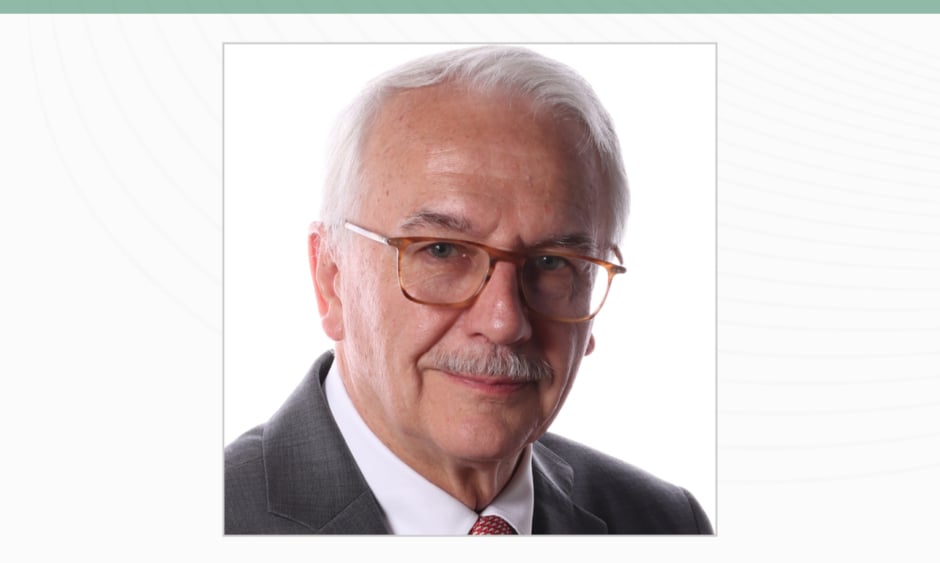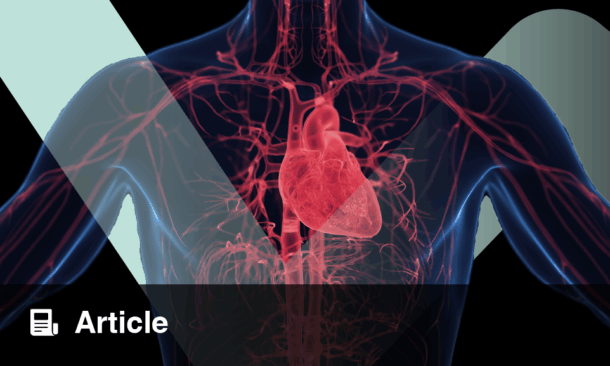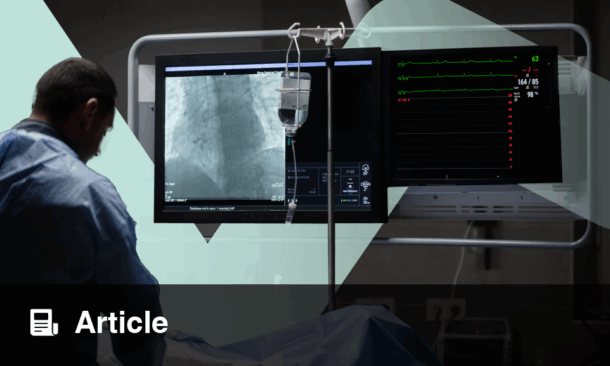Prof William Wijns |PCR Chairman; SFI Professor of Interventional Cardiology, National University of Ireland Galway, Galway, Ireland
![]()
With over 35 years of clinical experience in interventional cardiology, what initially attracted you to specialise in this field?
Forty-two years actually… I was primarily interested in intensive care and also post-operative care after cardiac surgery and it was the beginning of the coronary care. Then cardiology, which used to be somewhat of a contemplative discipline, started to transform very quickly: direct-current shock, pulmonary artery pressure monitoring, early angiography after myocardial infarction, thrombolysis, etc. Then in 1979, I moved to the Thorax Centre, Erasmus University Medical Center in Rotterdam, Netherlands because of their early adoption of balloon angioplasty. I remember it as if it were yesterday when Andreas Grüntzig came over to review the first 50 cases treated with the Schneider balloon, and we all know the rest of the story.
What does your role as Chairman of PCR entail, and what have you achieved so far in this position?
PCR is a wonderful worldwide community of healthcare professionals who are passionate about advancing less-invasive care of patients suffering from various cardiovascular disorders, using a wide array of different devices yet all with one common feature, which is to reach the target treatment site through the endovascular route, using patient-friendly vascular access. The Chairman’s role is to constantly stimulate PCR companions to search for excellence in adult education, following in the steps of Jean Marco and in line with a mission that has not changed over the past 35 years. PCR equals people, and the role of the Chairman is to help everyone get the best out of themselves.
Similarly, what long-term goals do you hope to accomplish during your term as PCR Chairman and what sort of legacy would you like to leave for those following you?
Certainly, we did not anticipate the challenges and transformative emergency that the coronavirus disease (COVID-19) pandemic imposed on us. Moving from face-to-face interactions to digital learning remains a challenge but also an immense opportunity. Together with my Co-Chairman, Jean Fajadet, from the Clinique Pasteur in Toulouse, France, a core group of 80 plus ultra-committed colleagues, and the enthusiastic support of the team at Europa Organisation, the backbone of PCR, we hope to draw the contours of the interventional course of the future. Without a doubt, we want to be able to again enjoy the rejuvenating boost that stems from personal sharing and exchange during physical meetings throughout the year, on all continents. There is more: we foresee the opportunity to reach out through digital channels to the many in need of education who are not able to attend, even those unable before the pandemic. Creating a model and learning the tools that will maximise the educational outreach to those who need it the most represents the challenge in front of us. With the support of our partners in the MedTech industry, the recent 2021 EuroPCR course has successfully delivered a proof of concept experiment that needs to be further refined but is already shaping the contours of future educational events: a revolutionary model that seems like a very sensible legacy for the next generation to build upon.1
The mission of the PCR is: ‘To serve the needs of each individual patient by helping the cardiovascular community to share knowledge, experience, and practice’. In your opinion, what areas of interventional cardiology need the most support to achieve this?
All areas of interventional science and care are in constant flux and sharing between peers is the fundamental act of generosity, bringing valued content to the process of adult learning. Of course, the cycle of innovation alternates moments of rapid progress and moments of slow motion when the road gets bumpy, but in general, I cannot see that one area is left behind. Across borders, the fundamental principles of effective education are the same. Patient-centric education is driven by patient-oriented needs and should be practical, impactful, trustworthy, self-directed, respectful of local culture and circumstances, and long-lasting. To this end, hundreds of colleagues have been trained to become more effective teachers and facilitators, applying the principles of Visionary Transformative Adult Learning (VITAL). And now, we are all learning how to deliver effective education through various digital media.
Since the start of the COVID-19 pandemic, patients have been consistently deprived of timely cardiovascular treatment. What actions is the We CARE initiative (a collaboration between PCR and Stent – Save a Life!) taking to promote timely care for patients with heart disease during the pandemic?
We CARE aims to re-establish patient confidence in accessing cardiac healthcare services in the wake of the pandemic. The programme will reach out to patients, their families, and patient organisations, but also to primary care providers and national champions from the PCR community. Secondly, We CARE will reach out on a national and international political level to ensure that healthcare providers are adequately prepared to deal with any future major crises that could impact the provision or access to care. The project relies on the track record of Christoph Naber (Wilhelmshaven Hospital, Wilhelmshaven, Germany) and the international team who have successfully managed the Stent – Save a Life project with amazing impact on the delivery of primary percutaneous coronary intervention for acute coronary syndromes.2
The recently formed PCR Tricuspid Focus Group is committed to fostering the establishment of tricuspid therapies, improving outcomes, and delivering sustainable clinical solutions for complex patients. What research is the focus group currently undertaking to support innovation in the treatment of tricuspid valve disease?
Your question describes exactly the ‘raison d’être’ of the PCR Tricuspid Focus group that was recently launched and is facilitated by Fabian Praz (Bern University Hospital, Bern, Switzerland) and Francesco Maisano (San Raffaele University Hospital Milano, Milano, Italy). Outstanding colleagues committed to advancing this field have clustered in several working parties addressing all aspects of the problem in a holistic fashion, namely anatomy and imaging, patient care pathways, interventions, outcomes, and innovation. Specific deliverables will be communicated to the larger community through various means: the website and PCRonline, webinars, publications, progress reports at PCR Courses, and social media. I anticipate that this very talented group will come up with new standards of care that will benefit patients who are difficult to treat within the next few years.
Are there any current challenges in interventional cardiology, and how can they be potentially overcome?
Too many challenges and opportunities to name them all. Perhaps the fundamental challenge is the difficult integration of different medical cultures, which hampers the achievement of optimal individualised patient outcome. The vertical structure of undergraduate and specialty medical training and the resulting cultural barriers are standing in the way of the needed integrated approach to patient care. Counterproductive territorial tension between medical treatment, interventional approaches, or surgery is difficult to overcome by postgraduate training only. The organisation of hospitals, divisions, and care pathways per medical discipline is no longer an adequate model. Solving severe disease conditions, often complicated by multiple comorbidities, is better achieved by teams mastering all the necessary expertise and organised as a functional structure equipped to address cardiovascular problems and associated renal and metabolic disorders. Major changes are needed in the way doctors and specialists are trained at medical school, as well as in the hospital structure and funding, aiming to eventually transform healthcare systems downstream.
What would your advice be to the younger generation that are following the same path and just beginning their career in this discipline. Where do you hope they will take the field of interventional cardiology over the coming decades?
Quite frankly, the next generation is amazing; their skills, creativity, wisdom, and broad knowledge are way above my own at their age. For them, embracing digital tools and telemedicine is natural. A growing number of female colleagues are joining a profession that has so far been largely dominated by males; gender parity is progressing. Programmes designed ‘by and for’ the next generation at PCR and the European Association of Percutaneous Cardiovascular Interventions (EAPCI) are often the most inventive and effective ones. Watch for instance the series of ‘CathFlix’ episodes on coronary interventions that were presented by Gabor Toth (Medical University of Graz, Graz, Austria) and colleagues before and during EuroPCR 2021. It is a demonstration of just how effective interactive teaching and learning can be! It is a gift to work with that community. There is no reason to be afraid or worried about the future.








